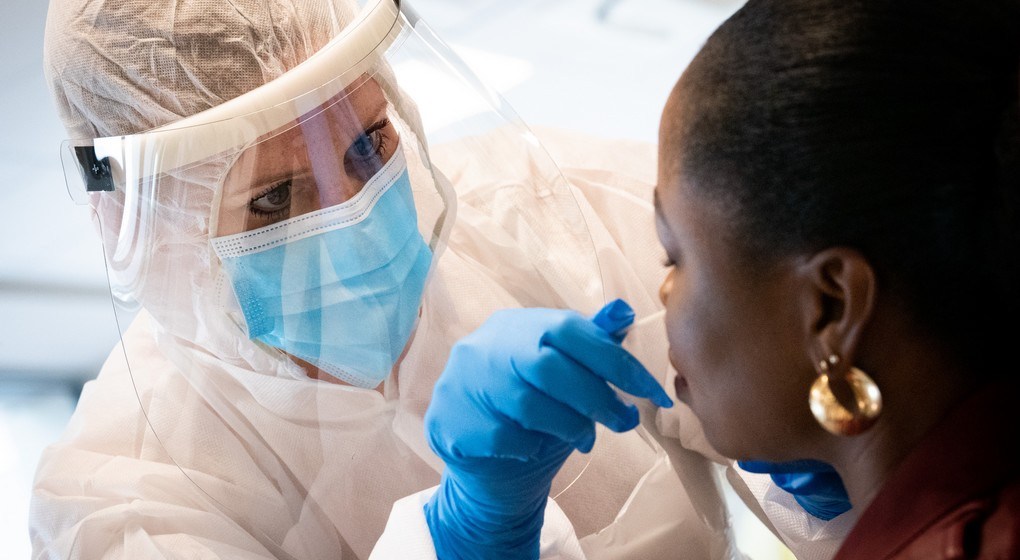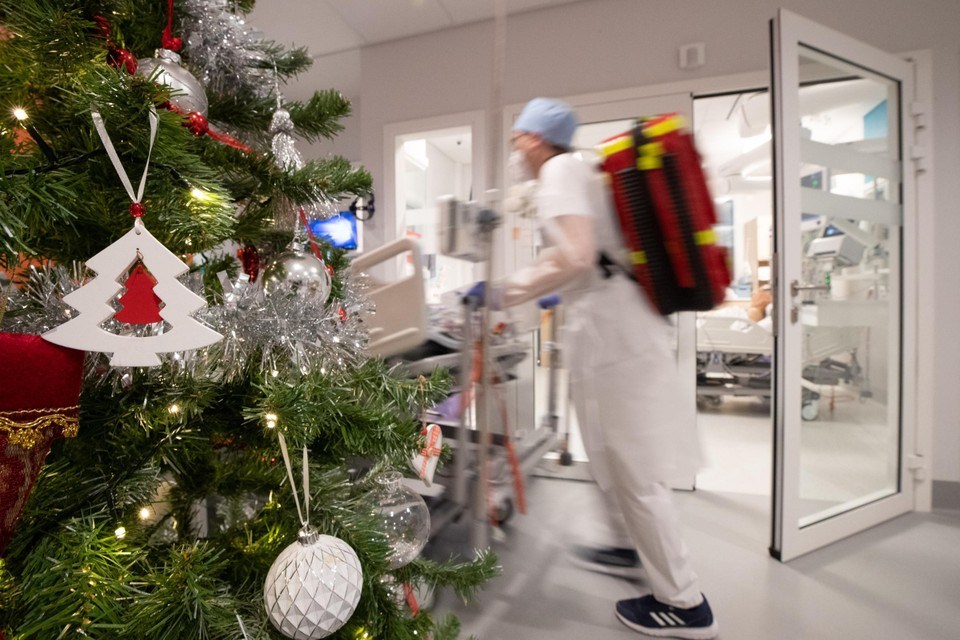The Covid-19 situation is continuing to worsen after having briefly improved in November, with the number of daily Covid-19 infections and hospitalisations in Belgium on the rise.
Between 22 and 28 November, the average number of new Covid-19 infections recorded per day increased by 28% to 963, figures published by the Sciensano Institute of Public Health on Friday showed. Just two weeks ago, this figure sat around 620.
"With winter approaching, we are currently seeing Covid-19 cases rise. Good winter habits now can make a big difference," top virologist Steven Van Gucht said during a briefing on Friday.
"Think of cleaning your hands, having good ventilation, staying home when sick or wearing a face mask when you have mild symptoms, wearing a face mask on public transport and making sure your vaccination is up to date," he added.
The average number of tests taken per day has also risen to about 6,800 per day, while the positivity rate increased to 15.3%, meaning more than one in seven tests has a positive result.

Credit: Belga
The share of Omicron variants BA.4 and BA.5 is systematically decreasing (now amounting to about one-third of infections), while BQ.1 and BQ.1.1 are increasing. These new Omicron variants now represent two out of three infections.
In the same week, an average of four deaths from Covid-19 infections were recorded per day. The total number of deaths in Belgium since the start of the pandemic is 33,061; however, this includes people who died of another cause but who were infected, meaning it is an overestimate of Covid-19 deaths.
Hospitals and vaccinations
An average of 69.9 patients suffering from Covid-19 were admitted to hospitals each day, up by 36% since last week. This figure only includes the number of people hospitalised because of the virus.
The total number of people infected with the virus in Belgian hospitals has risen to 957, almost 80 more than Tuesday this week. The number of patients being treated in intensive care has remained stable at 48 (+3). This figure includes people who were admitted for another reason and later contracted the virus.
Related News
- Less than 50% of people in Flanders take autumn Covid booster
- Quarter of young Belgians feel in poor physical or mental health
The reproduction rate has increased to 1.22. When this figure is higher than 1, it means that the epidemic is growing. The incidence (the number of new cases per 100,000 inhabitants) has slightly increased to 104 from 85 last week.
As of Tuesday, more than 7.22 million people received a first booster dose of the vaccine, representing 76% of over-18s and 62% of the entire population, while more than 3.8 million people also received a second booster dose, equivalent to 41% of over-18s and 33% of the total population.

